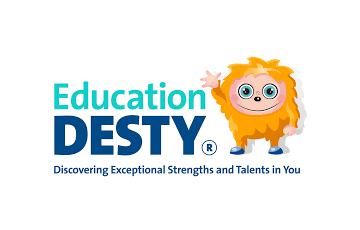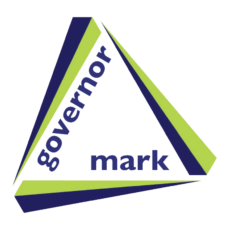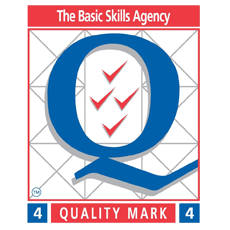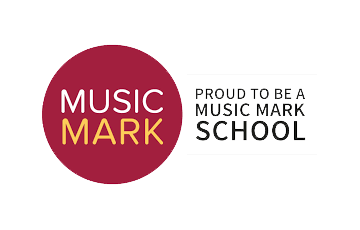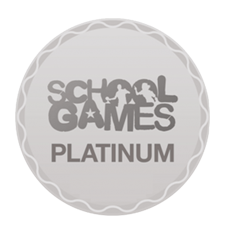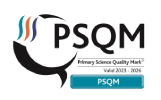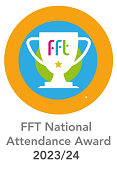History
Mrs Riley - History Subject Leader Mr M Stanway - Link Governor
The more you know about the past, the better prepared you are for the future. – Theodore Roosevelt
Intent
The aim of our history curriculum is for the children to recognise the significance of the past, from a British and World history sense, to understand its relationship with the present. Our history curriculum is rigorously sequenced so that current learning is linked to previous learning and our children’s historical knowledge, understanding and skills build over time. We also want to make full use of our immediate and wider local area, enabling children a deep understanding of the rich history of their own locality.
We seek to shape our curriculum around key threads of knowledge pertaining to key people, events/achievements, and lifestyle changes in the past in EYFS to Key stage 1 and build on these threads alongside other over-arching, transferable concepts in Key stage 2. It is these that make our history curriculum coherent, sequential, and meaningful. By mapping out themes across units and revisiting them, the children make connections in learning, gain historical perspective from different contexts and deepen their understanding of the world we live in today.
In line with the National Curriculum 2014, we also aim to ensure that, through the teaching of history all pupils:
- gain a coherent knowledge and understanding of Britain’s past and that of the wider world.
- Are inspired and show curiosity about the past.
- Are encouraged to ask questions, think critically, explore evidence, examine arguments, and develop perspective and judgement.
- Begin to understand the complexity of people’s lives, the process of change, the diversity of societies and relationships between different groups, as well as their own identity and the challenges of their time.
In order to do all of the above, we ensure that in our history lessons both our pupils’ substantive and disciplinary knowledge is built upon year on year.
Implementation
In ensuring high standards of teaching and learning in History, we implement a curriculum that is progressive throughout the whole school:
The coverage of recent history in KS1 enables children to acquire an understanding of time, events and people in their memory and their parents’ and grandparents’ memories. Through our carefully planned topics, pupils develop an awareness of the past, using common words and phrases relating to the passing of time. They will start to know where the people and events they study fit within a chronological framework and identify similarities and differences between ways of life in different periods. As they progress through the key stage, they will begin to make comparisons and connections between people and events in the past.
In Key Stage 2, children will continue to develop a chronologically secure knowledge and understanding of British, local and world history, establishing clear narratives within and across the periods they study. The children are taught topics in chronological order from ancient history such as ‘Ancient Egypt’ and then progress onto more modern history such as ‘World War I’. In our school, we aim to embed the sequence of chronology from ancient to modern allowing our children to truly develop and embed a sense of time, place in society and how civilizations were interconnected.
At Eccleston Lane Ends:
History is taught as a half-termly or termly topic, focusing on knowledge and skills/concepts stated in the National Curriculum, to build an in-depth knowledge about a particular period in history, or understand how an aspect of life has changed through time.
The key knowledge and skills that children acquire and develop throughout each topic have been mapped to ensure progression between year groups throughout the school and opportunities to practise and embed skills are planned for so that they are revisited and refined over time.
The substantive knowledge/concepts taught within each topic are mapped out onto topic knowledge mats, so that the children can refer to them, build on them and make valuable links between areas of study. Our History ‘Golden Threads of Learning’ such as ‘change’ or ‘invasion’ are embedded through topics and/or themes in every year group throughout our History curriculum to secure coherence, connections and progression.
The disciplinary progression throughout EYFS, KS1 and KS2 covers, historical skills which are:- knowledge of people, events and time, chronology, interpretation, enquiry, and communication.
Within our curriculum, we also ensure progression and coverage in disciplinary historical concepts which include: continuity & change (C&CH), cause & effect (C&E), similarities & differences (S&D), significance (S) and evidence /sources (E). These concepts are carefully considered in our topics throughout all year groups.
- At the beginning of each new history topic, teachers refer to timelines to develop children’s understanding of chronology and each topic is introduced with reference to the chronology of previous topics (including those from previous years).
- The strategy of KWL (What I Know, What I would like to know and what I have learnt) is used to check existing knowledge at the beginning of each history topic and this process informs a programme of study that is responsive to children’s interests.
- There is a structure to the lesson sequence whereby prior learning is always considered from the lesson before and opportunities for revision of facts and historical understanding are built into lessons.
- ‘Make It Stick’ planners are used for children to record learning from lessons on. These are accessed at the start of each lesson and the prior knowledge/learning is built upon.
- The rigorous teaching of vocabulary ensures that children can gain and deploy a historically grounded understanding of abstract terms such as ‘empire’ or ‘legacy’.
- The revision and introduction of key vocabulary is built into each lesson. This vocabulary is then included in display materials and additional resources to ensure that children are allowed opportunities to repeat and revise this knowledge.
- End of term quizzes are utilised in class based on the Los for the lessons taught throughout a topic (knowledge based).
- Themed weeks are timetabled into the calendar to cover areas of local History that we feel is both beneficial and successful to celebrate at the same time across the school. We work towards displaying our learning and bring it altogether as a school community.
- Local History is taught in individual classes through links with themes or topics. It is also taught in KS2 as a topic focus on our local town of St.Helens and during whole school focus weeks based on different aspects of history in Liverpool, to ensure knowledge and coverage is built upon around our local city.
- Key historical figures from different periods and backgrounds are either taught alongside a particular topic or considered as wider curriculum links throughout the year.
- Classes have ‘Real History experiences’ linked to their topics to excite and brill the time alive for the children. The children have a real hands on experience, whereby they get to visual and dramatize the time period in question. Alternatively, classes also go on trips to sites/areas of interest to enhance their learning.
- In a lot of cases, English lessons and creative writing throughout each year group, are planned in and link to their History topic.
- British Values are linked to our lessons and are taught through Picture News assemblies – linked to current and historical affairs. Children have a better understanding of the world in which they live and how these affairs impact on us. Class discussions the following day then allow children more opportunities for discussion and debate.
- The History topics frequently form the core of our cross-curricular approach to teaching, support and engaging our pupils with work in many other subjects, including English, Art and Design and technology. In this way, children can gain a richer and deeper understanding of each particular period in time.
- We aim for our children to enjoy and love learning about history by gaining this knowledge and skills, not just through experiences in the classroom, but also with the power of educational visits, visitors and real and replica artefacts.
- We also maximise the opportunities that our local area (St. Helens /Prescot) and home city of Liverpool has to offer in terms of its rich history and vast array of museums and cultural sites.
EYFS
The Early Years Foundation Stage Curriculum supports children’s understanding of History through the planning and teaching of ‘Understanding the World’. This aspect is about how children find out about past and present events in their own lives, their families and other people they know. Children are encouraged to develop a sense of change over time and are given opportunities to differentiate between past and present by observing routines, the passing of seasons and time and looking at photographs of their life and of others.
Impact
The impact of this curriculum design will ensure that all pupils progress in History over time and across key stages. This will be relative to a child’s individual starting point and their progression of knowledge and skills (substantive and disciplinary).
By the end of year 6, children will have a chronological understanding of British history from the Stone Age to the present day. They can draw comparisons and make connections between different time periods and their own lives. Interlinked with this are studies of world history, such as the ancient civilisations of Greece and the Egyptians, as well as local history. They should be able to describe key events, understand both the inventions and achievements of ancient civilisations and their impact on life today. Outcomes in History and English books evidence a broad and balanced History curriculum and demonstrate the children’s acquisition of identified key knowledge and skills.
The impact of using the full range of resources, including display materials, will be seen across the school with an increase in the profile of history. The learning environment across the school will be more consistent with historical technical vocabulary displayed, spoken and used by all learners. We want to ensure that history is loved by teachers and pupils across school, therefore encouraging them to want to continue building on this wealth of historical knowledge and understanding, now and in the future.
Impact can also be measured through key questioning skills built into lessons, child-led assessment such as success criteria grids, make it stick assessments, quiz-based end of unit assessments, book looks, pupil voice and regular feedback in lessons.



.PNG)

